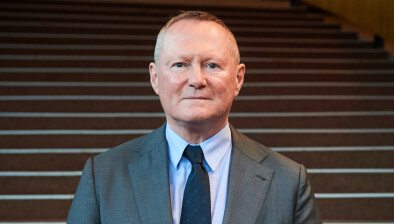CJEU rules hijab can be banned at work

A new ruling by the Court of Justice of the European Union (CJEU) would allow employers to ban the wearing of visible symbols of religious or political belief, such as headscarves.
The court stipulated that such a ban would need to be justified by the employer’s genuine need to present a neutral image towards customers or to prevent social disputes.
The CJEU examined the matter after two Muslim women brought cases to their local courts to dispute disciplinary action taken by their employers due to their refusal to remove their headscarves.
The court was asked to examine whether an internal rule of prohibiting workers from wearing any visible sign of political, philosophical or religious beliefs in the workplace constitutes, with regard to workers who observe certain dress codes based on religious precepts, direct discrimination on grounds of religion or belief.
In its judgment, the court said such a rule “does not constitute direct discrimination provided that it covers any manifestation of such beliefs without distinction and treats all workers of the undertaking in the same way by requiring them, in a general and undifferentiated way, to dress neutrally, which precludes the wearing of such signs”.
The court explained that it is a “legitimate aim” for employers to want to present a politically and religiously neutral image to customers, but warned that a ban on employees wearing any signs of their beliefs could only be legitimate if there was a “genuine need” on behalf of the employer.
It was also laid out that measures to prevent wearing signs of a person’s belief “must be limited to what is strictly necessary having regard to the actual scale and severity of the adverse consequences that the employer is seeking to avoid by adopting the prohibition”.
Furthermore, the court set out that the ruling must not be used to justify rules which would result in a particular disadvantage for persons adhering to a particular belief, such as a rule against large conspicuous signs of belief (such as a headscarf) but allowing small inconspicuous ones (such as a crucifix necklace).
The recent judgment has already been met with backlash from those who fear the ruling could lead to discrimination, especially in countries such as France where there are already measures in place to ban women from wearing headscarves in certain places.
Maryam H’madoun, a Belgian campaigner against headscarf bans and a justice policy officer for the Open Society Foundation, said she feared that the ruling could lead to discrimination amid rising hostility to Muslims across Europe.
She said: “Laws, policies and practices prohibiting religious dress are targeted manifestations of Islamophobia that seek to exclude Muslim women from public life or render them invisible.
“Discrimination masquerading as ‘neutrality’ is the veil that actually needs to be lifted. A rule that expects every person to have the same outward appearance is not neutral. It deliberately discriminates against people because they are visibly religious.”










